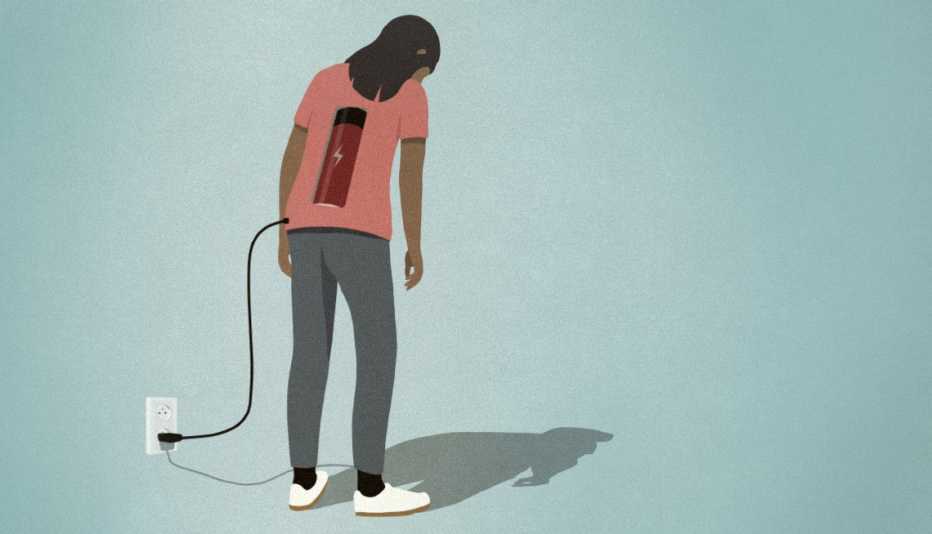AARP Hearing Center


Burnt out and constantly depleted of energy? It’s not a good feeling, but know that you’re not alone.
Research suggests that fatigue (or anergia, in medical lingo) runs as high as 50 percent in people 65 and older, compared with rates in the general population that range from 10 to 25 percent. It’s even more prevalent among adults living with health conditions that become more common with age, such as heart disease. As many as 74 percent of older adults with a chronic illness experience fatigue, a review of studies published in 2021 suggests.
Yet “fatigue is not a natural consequence of aging,” says Barbara Resnick, codirector of the Biology and Behavior Across the Lifespan Organized Research Center at the University of Maryland School of Nursing. “It’s more related to the changes that occur due to age and commonly associated diseases.”
Fatigue is common when you’re fighting any kind of illness — from infections, like flu or COVID-19, to autoimmune disorders. It’s also a side effect of some treatments, such as chemotherapy.
Beyond that, “all of us feel tired some of the time,” says Suzanne Salamon, M.D., assistant professor of geriatric medicine and primary care at Beth Israel Deaconess Medical Center in Boston. “Usually, it goes away, either with sleep or time.”
But if unexplained fatigue continues for more than a few weeks, it’s time to figure out what’s causing it. Here are some of the likely suspects (keep in mind, though, that more than one culprit may be responsible).
1. Your medications are sapping your energy
“Older adults take a lot of medications, and a lot of those medications tend to make people feel tired,” says Brenda Windemuth, director of the Adult Gerontology Primary Care Nurse Practitioner Program at the University of Maryland School of Nursing. Chief among these: certain antidepressants, antianxiety drugs, sedatives, antihistamines, steroids, and blood pressure and cholesterol medications.
Antipsychotics, pain meds, seizure drugs and chemotherapy also stir up trouble. Others, like diuretics, contribute to exhaustion by disturbing your sleep.
“Not all drugs cause the same effects in all people,” Salamon says. “If a person has started a new medicine and they notice fatigue, they should report this to the doctor. Sometimes just moving the drug to the evening or lowering the dose can help, but sometimes you need to change to a different medicine.”
She recommends always bringing all your medicines — prescription and over-the-counter — to your office visits so your doctor can check doses and duplicates.































































More From AARP
Your Smartphone and Sleep
Learn about how quality sleep may support your brain health at AARP® Staying Sharp®
What to Know About the 'Eris' COVID Variant
The omicron spinoff is now the dominant strain
5 Things to Know About Taking 5 or More Medications
Taking multiple drugs increases your risk for falls, confusion and other serious side effects